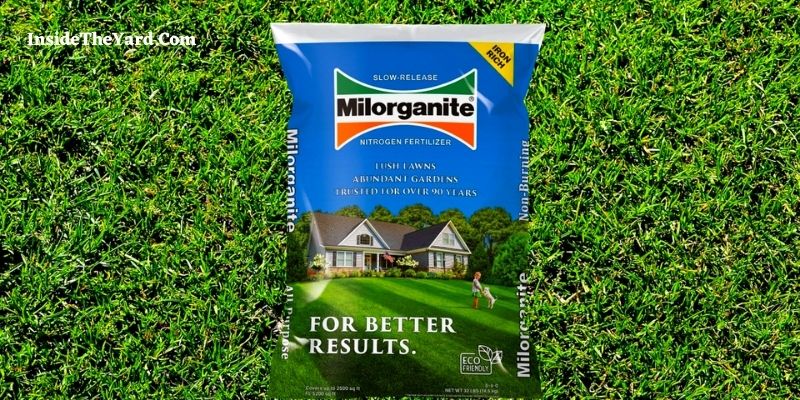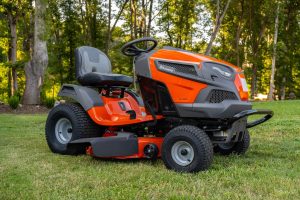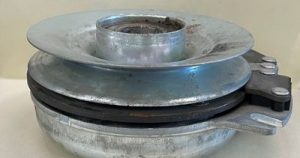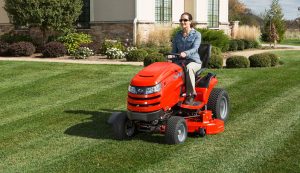Does Milorganite Kill Weeds? Proper Application Process You Must Know

You might have seen some gardeners using Milorganite to control weeds and other unwanted herbs in the garden. So, does Milorganite kill weeds? Yes, it can be used to control the weeds along with some other herbicides.
Weeds in your lawn take the upper hand over the useful and beneficial grass because of the suitable growth environment and abundant nutritional supply.
What Milorganite does is choke those annual weeds. However, let’s talk in brief inside.
Table of Contents
Does Milorganite Kill Weeds?
Milorganite is not an herbicide. It is a sustainable slow-releasing organic nitrogenous fertilizer.
This organic fertilizer promotes dense turf and green lawn that overshadows the growth of the weeds. Hence, the weeds stop germinating in the first place.
Moreover, mixing pre-emergent weed killers with milorganite makes the process faster and easier.
Applying milorganite periodically in the lawn may bring variable results. Being an organic fertilizer will provide sufficient nutrition to the weeds, just like other grass and other plants on the lawn.
Then, why is Milorganite essential for controlling weeds growth?
Nitrogen-Rich Fertilizer
Does milorganite have nitrogen? Milorganite is a 90% organic fertilizer that has an NPK ratio of 5:2:.32. That means it has high nitrogen content. So it stunts the growth of weeds like white clover, lespedeza, etc., that develop well in low nitrogen content soil.
Ensures Thick Turf
The three basic components of milorganite- nitrogen, potassium, and phosphorus nourish the lawn and help the roots of the grass to spread wide under the soil. It leaves no room for the roots of weeds to grow.
Moreover, tall grass with long leaf blades shadows the small weeds. So it does not get sufficient rainwater and sunlight for its optimum growth. This helps to reduce the growth of new weeds.
Inhibits Weeds Germination
When the soil temperature reduces, grass and other green plants absorb nutrients faster from the organic fertilizer, milorganite to combat winter dormancy. Weeds that germinate late and lack nutrients in winter become brown and dry off.
Using milorganite alone can also be a temporary solution to control weeds. So, questions like- Can you use milorganite with other fertilizers? Or should we add some herbicides to this fertilizer? – comes out of curiosity.
If you don’t want to spend a couple of hours on the lawn pulling out the weeds, you should mix herbicides with milorganite and spray them on the lawn. But how to apply milorganite mixed with herbicides?
Milorganite Schedule
Buying suitable milorganite fertilizer is not enough. You should know your lawn condition, area, plants, and grass type, and budget.
Application Time
The time of application of Milorganite differs on geographical location. Then when to use milorganite? For cool-season grass like ryegrass, bluegrass, etc holiday schedule is perfect. That is, you can fertilize your lawn on Decoration Day, 5th September labor day, and once on thanksgiving day.
If you are from warm countries, nourish grass like Bermuda grass, tall fescue, lawn grass, fertilize the lawn at the beginning of the spring.
Tools needed:
Work steps:
Now, if you ask how long does milorganite take to work on a lawn? – may vary depending on the condition.
But if you want to be sure how long does milorganite last, we’ll say that It disappears in a few days following rain or watering the lawn.
This Video Will Help You Too!
Frequently Asked Questions (FAQs)
Is milorganite an herbicide?
Milorganite can’t be confused with an herbicide. It is a nitrogen-rich organic fertilizer that is made of dry microbes of water waste. It has an NPK ratio of 5:2:.32.
Can I apply milorganite every month?
Milorganite is a slow-releasing organic fertilizer. It requires at least 1 to 11/2 months to release the nutrients. So you should apply it once every two months.
How soon will I see results from milorganite?
After the second or third application, you will notice a green, healthy and bushy lawn within seven days. Initially, it requires more time as it is a slow-releasing fertilizer.
Is milorganite made from human feces?
Milorganite is not made from human feces. This fertilizer is rich in dry microbes. Milorganite smells a little as some of the ingredients are obtained from water waste.
Is milorganite harmful to dogs?
Milorganite is an organic and environment-friendly fertilizer. It will not cause any irritation when it comes in contact with your dog’s skin. But ingesting the residual fertilizer from the lawn may cause an upset stomach and temporary discomfort to your dog.
Does milorganite smell badly?
Some think that milorganite is made from stools, swage waste. But this organic fertilizer is made of dried microbes from wastewater and other natural ingredients.
So, it has a light watery smell. After its application, soil aroma takes the upper hand.
Should you use milorganite before rain?
Using milorganite, while raining helps the fertilizer to mix properly with the soil and dig deeper. When added with pre-emergent, you should routinely water your lawn. This fertilizer is non-toxic. So it does not pollute the nearby water bodies when washed away.
Final Verdict
You cannot control weeds’ growth by plucking them every weekend. This is very tiring and time-consuming. Moreover, applying fertilizers also provides a suitable environment for these unwanted herbs. But does milorganite kill weeds?
This may sound like a myth but not impossible. You can modify the action of the fertilizer using herbicides. Before that, you have to know- milorganite when to apply and how to apply? A perfect application plan will help you gain a weed-free lawn.







